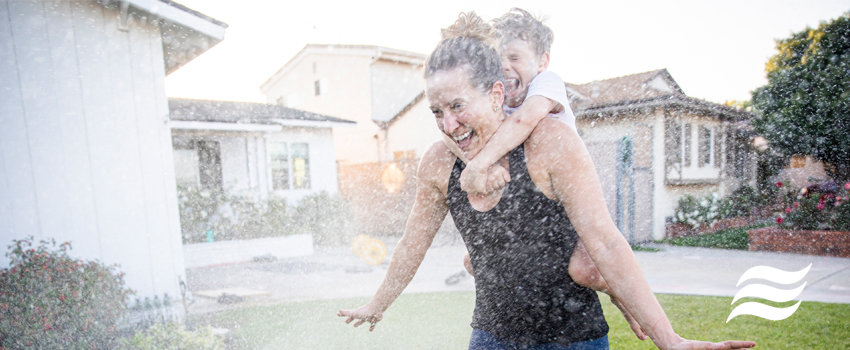
How to Get Your Plumbing Ready For Summer
With the summer months finally starting to move in, the bitter chill of the winter is being left behind, and we’re getting enough sun at the weekends to roll out the BBQ!
We’re all delighted to be out in the spring sun, but what does this mean for our pipes and outdoor plumbing after a cold winter?
Our pipes and plumbing fixtures outdoors are going to be experiencing a shift in temperature. Cold air becomes warmer, snow and ice have melted away, and our fixtures are experiencing a change that might affect how they work.
If you’re worried about the best way to get your plumbing ready for summer, we’ve got some great plumbing tips for you. Today we’re going to make sure you have everything you need to ensure that your outdoor plumbing works efficiently, all summer long.
Your Go-To Pre-Summer Checklist for Outdoor Plumbing Fixtures
We recommend following our summer plumbing checklist to get all your outdoor plumbing fixtures ready for the hot North Virginia summer. Here are 5 things you should check before the summer heat starts to creep in.
1. Inspect all your outdoor faucets for cracks or holes
Your outdoor faucets might have been damaged over the winter months. The dropping temperatures can freeze water in your pipes, and when water freezes, it expands. This expansion can cause both pipes and faucets/fixtures to crack.
Ensure your outdoor faucets aren’t damaged by checking for leaks, cracks, and other signs of wear and tear. If you see any damage at all, you should replace it or get it fixed right away before it develops into a bigger (more expensive!) problem.
2. Keep an eye out for sweating pipes
Just like cold weather brings pipe problems, so does the summer sun. In summer, your pipes can actually get too hot!
Sweating pipes are a regular occurrence in the summer, and it happens because the water inside your pipes is a lot colder than the air outside them. This makes it look like your pipes are leaking, but in fact, they are sweating.
Sweating pipes cause a lot of water waste, so it’s best that you wrap your pipes, just like you would in the winter, to prevent them from sweating so you can avoid spending unnecessary money on your water bills.
3. Check your sprinkler system
It’s essential to keep your sprinkler system clear of all debris, especially after months of being out of use during winter. It’s best to monitor them for any clogs throughout the summer season too.
Sprinkler heads can quickly become clogged with:
- Dirt
- Grass
- Pet hair
- Foliage
- Small pieces of trash
When sprinkler heads become backed up with these materials, it can cause a significant buildup in water pressure, often bursting the system’s water main. Test your sprinkler system at the start of the year and keep checking on it throughout the summer to make sure it’s working correctly. Inspect the heads of each sprinkler, too, to ensure they’re not damaged either. Sometimes you might have hit one with the lawnmower without even realizing it.
A damaged sprinkler head doesn’t just fail at watering your lawn or flower bed. It also wastes water as water from the main tank is being delivered to that sprinkler head. If you find a damaged sprinkler head, replace it as soon as you can so you won’t waste any money.
If you’re currently setting up your sprinklers, make sure they’re pointed away from your home’s foundation. Many people have had to call a plumber during the summer because their basement has flooded thanks to a rogue sprinkler head or two.
4. Clear your gutters
Now, clean gutters might not be the first thing you think of when it comes to summer outdoor plumbing, but they’re a common cause of plumbing problems in the summer.
They play an essential role in keeping water away from your home. For them to work efficiently, your gutters have to be free of any leaves, dirt, twigs, and other debris that might have gotten stuck. If you leave them full of a winter’s worth of leaves, spring’s bird nests, and anything else that’s got trapped, they’ll overflow and cause damage to your home.
5. Check sewer lines and septic systems
Sewer lines can quickly develop cracks, and over the cold winter, ice can get trapped in these cracks and make them bigger. These giant cracks will allow rain to seep in and potentially cause backups in your sewer line – which is the last thing you want on a hot summer’s day.
Before the summer starts, it’s vital that you get your sewer line inspected by a professional. Tree roots can also cause severe backups with your sewage. They can grow through the joints in your pipes and will have to be cut with blades, or they’ll do some serious damage. You can hire a company to come and provide a root destroyer service to prevent any more growth in your sewage pipes.
If you’ve got a septic system and plan on having large family barbeques this summer, then remember that more people means more water use. Make sure to schedule an inspection of your septic tank and organize some yearly maintenance before you start partying through the summer. By getting your system checked out, you’ll be able to prevent an overload, and everything will stay clean and smelling fresh for you.
Making sure your outdoor plumbing is fighting fit for the summer is essential for any home, which is why you should have your outdoor plumbing inspected by a professional.
